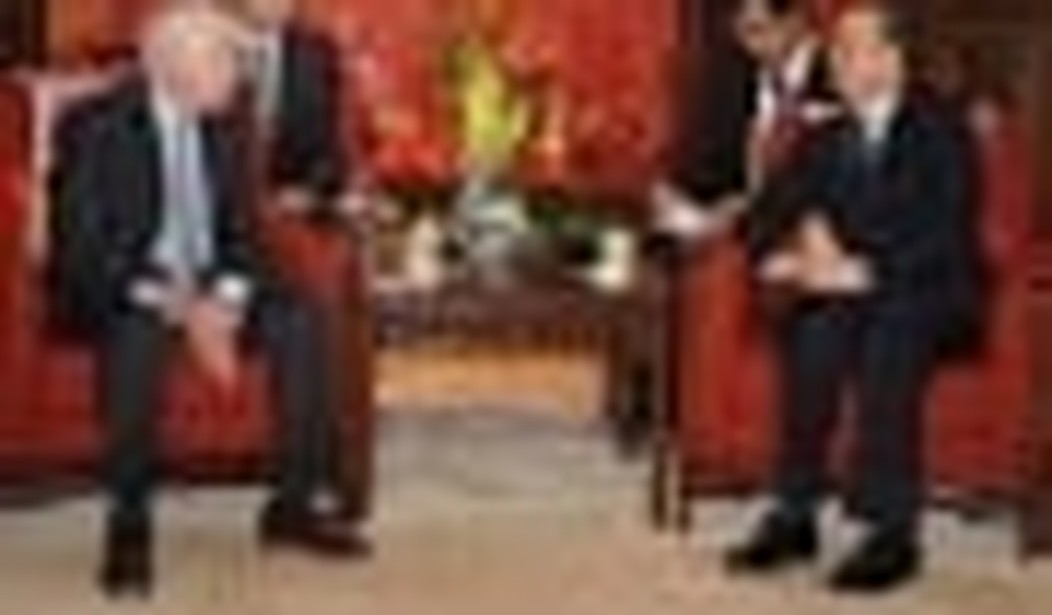Jimmy Carter was in Beijing last week to meet with Chinese communists, and, as usual, the former president was up to no good. Yet again, he helped legitimized dictatorial leaders and thereby made the world a little darker.
Mr. Carter was in the Chinese capital to open two days of events to mark the 30th anniversary of the resumption of diplomatic relations between the United States and China, which occurred during his presidency. While there, he was effusive in his praise for the Communist Party’s record in recent years. “Not even Deng Xiaoping could have anticipated the glorious changes that have taken place in this wonderful country,” Carter gushed.
Is “glorious” the right word? According to the 39th president, “There’s been tremendous changes made in China, and I would expect that same trend toward more openness, more freedom, more participation in government by the people will continue.”
Should we take Carter’s word for developments in China? Is there, in fact, “more openness”? Do the Chinese people have “more freedom”? Is there “more participation in government by the people”?
China as a society is certainly more open today than it was when Mao Zedong died in 1976, and it is even more open now than it was in 1997, when Deng, Mao’s successor, passed away. Yet the country is more “open” — in all meanings of that term — because of economic change. And since Deng’s death the credit for economic change belongs mostly to the Chinese people, who have pushed their government to restructure and reform. Their leaders — first Jiang Zemin and now Hu Jintao — have tried to slow the pace of positive change, however. For the last decade, the Communist Party has mostly tinkered with rules and sponsored almost as many regressive measures as reforms, working to close off China’s internal market to foreign goods and services, for instance. The Communist Party resisted the one major advance in this period — accession to the World Trade Organization — and joined the global trading body only when it was forced by external circumstances to do so.
Are the Chinese people more free at this moment? Today, China’s citizens certainly have more choice in their lives than they did when Mao died. They can, for example, marry whom they want, live where they choose, and work for the employer of their choice. These personal freedoms are significant, of course. The continuing withdrawal of the Communist Party from both the workplace and the home means that China is no longer a Maoist totalitarian state. And the state has continued to withdraw from people’s lives after Deng’s death.
But the advance of freedom has more to do with demands from the citizens than with the liberalization of the regime. And, while Chinese society as a whole has become freer due to grassroots demands, the country’s political system has become more repressive. China, unfortunately, is in the sixth year of a crackdown, sponsored by Hu Jintao, on everybody, from newspaper editors to the writers of karaoke songs. The Communist Party has recently added controls on internet cafes, closed nongovernmental organizations, and added even more restrictions on religious practices. The disastrous one-child policy is still brutally enforced.
Moreover, the room for political speech has narrowed considerably. Twenty years ago, in the first half of 1989, Chinese people could talk politics with far less fear of reprisal than they can today. Why? For one thing, the Communist Party has been unable to acknowledge responsibility for the Tiananmen slaughter and so has felt the need to stifle talk of democratization and other political topics. Moreover, today’s bland leaders simply feel less secure than the charismatic Deng Xiaoping.
In these circumstances, it is no surprise that there is not much “more participation in government by the people.” The central government has allowed citizens to comment on proposed rules and legislation and to sue officials in court in severely limited circumstances, but that is small beer considering all the time that has passed since Mao died. The Communist Party still demands that it alone exercise power.
What is the reality of political freedom at this moment? Let’s look at a series of events that started last year as an example. The Chinese government announced that it was setting up zones for protesters during the Olympics in August. Though many applied for permits, none were ever granted. The state detained those who wanted to demonstrate, including two women — aged 77 and 79 — who were sentenced to labor camp before an international outcry forced their release. Last week, one man who sought a permit got three years in the slammer.
Little that Carter said about improvement of rights in China is right. Yet Jimmy doesn’t have to worry about his personal safety while visiting his favorite authoritarian states, because their rulers will never put him in jail. His foreign trips now have a predictable quality about them. He chooses the most repressive country in the region, flies into its capital city, blesses the resident despot, then leaves with glowing press coverage from state media. No wonder Carter says we shouldn’t have an “inordinate fear of communism.” Communist leaders just love this guy.
Yet Jimbo Carter is a man who prides himself on championing human rights — he has been a vociferous critic of Bush administration rights practices, for instance. But during last week’s trip he had not one word to say in public about his Chinese hosts’ horrific human rights record. After all, it’s only democracies that merit his criticism. He can’t seem to stop praising communists.









Join the conversation as a VIP Member